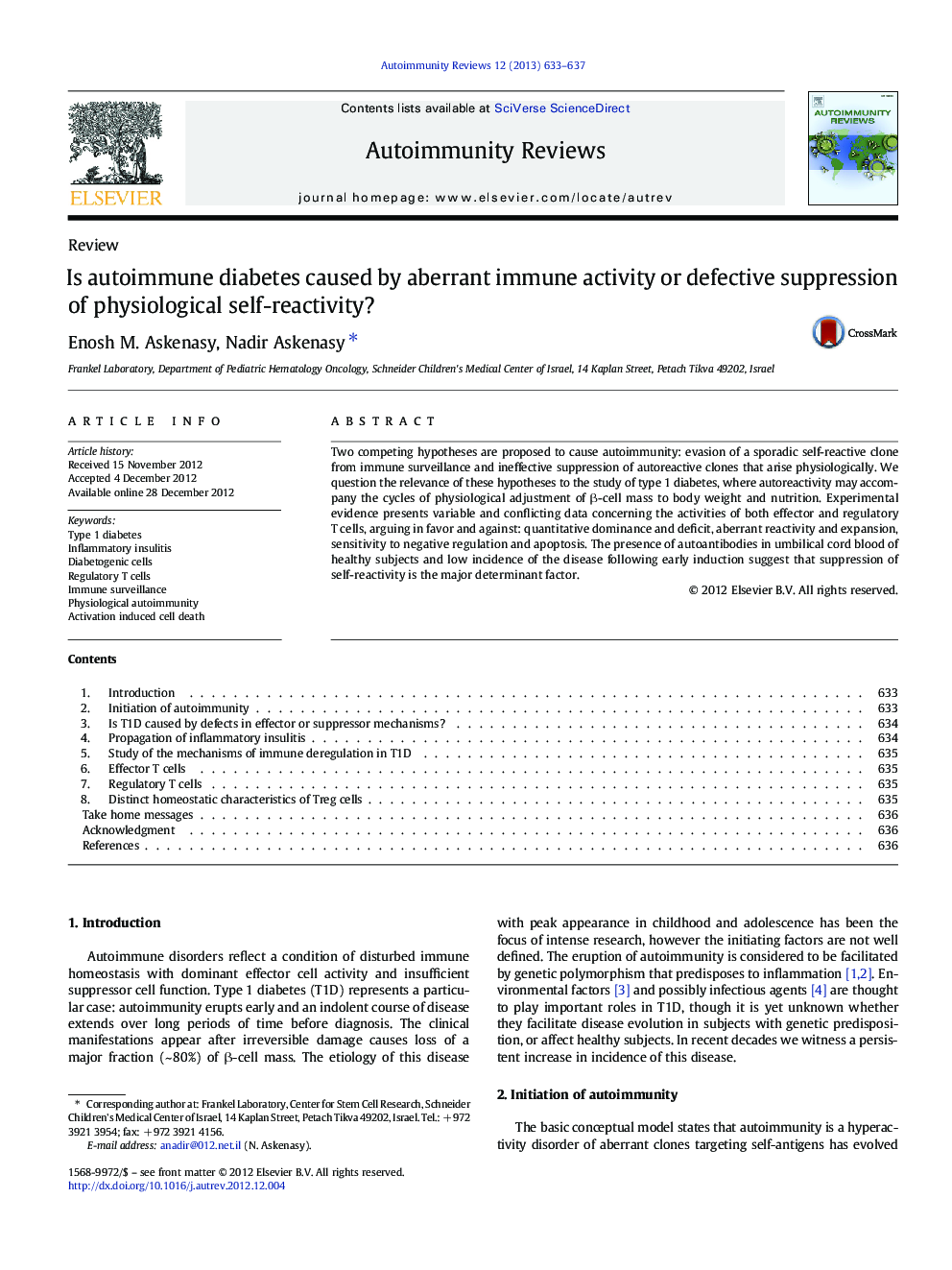| Article ID | Journal | Published Year | Pages | File Type |
|---|---|---|---|---|
| 6114603 | Autoimmunity Reviews | 2013 | 5 Pages |
Abstract
Two competing hypotheses are proposed to cause autoimmunity: evasion of a sporadic self-reactive clone from immune surveillance and ineffective suppression of autoreactive clones that arise physiologically. We question the relevance of these hypotheses to the study of type 1 diabetes, where autoreactivity may accompany the cycles of physiological adjustment of β-cell mass to body weight and nutrition. Experimental evidence presents variable and conflicting data concerning the activities of both effector and regulatory T cells, arguing in favor and against: quantitative dominance and deficit, aberrant reactivity and expansion, sensitivity to negative regulation and apoptosis. The presence of autoantibodies in umbilical cord blood of healthy subjects and low incidence of the disease following early induction suggest that suppression of self-reactivity is the major determinant factor.
Related Topics
Life Sciences
Immunology and Microbiology
Immunology
Authors
Enosh M. Askenasy, Nadir Askenasy,
